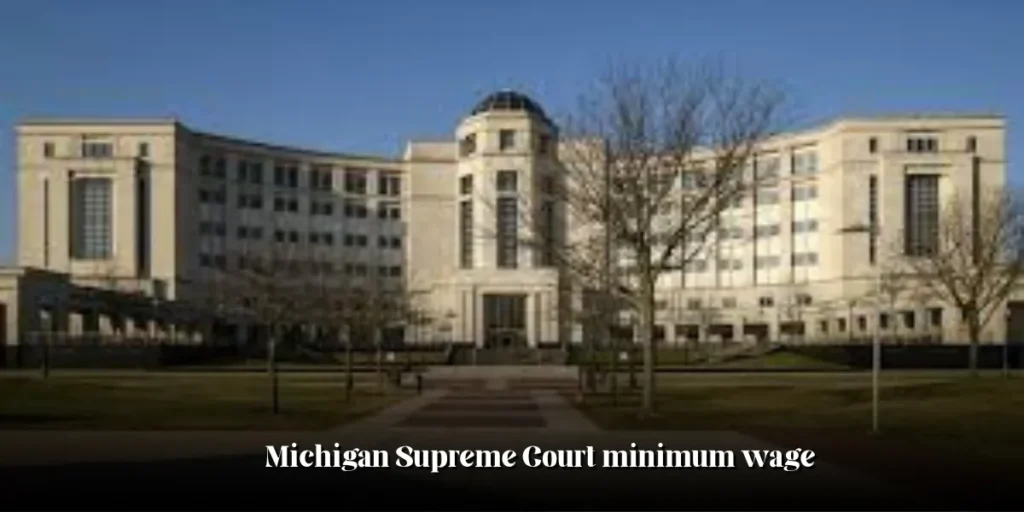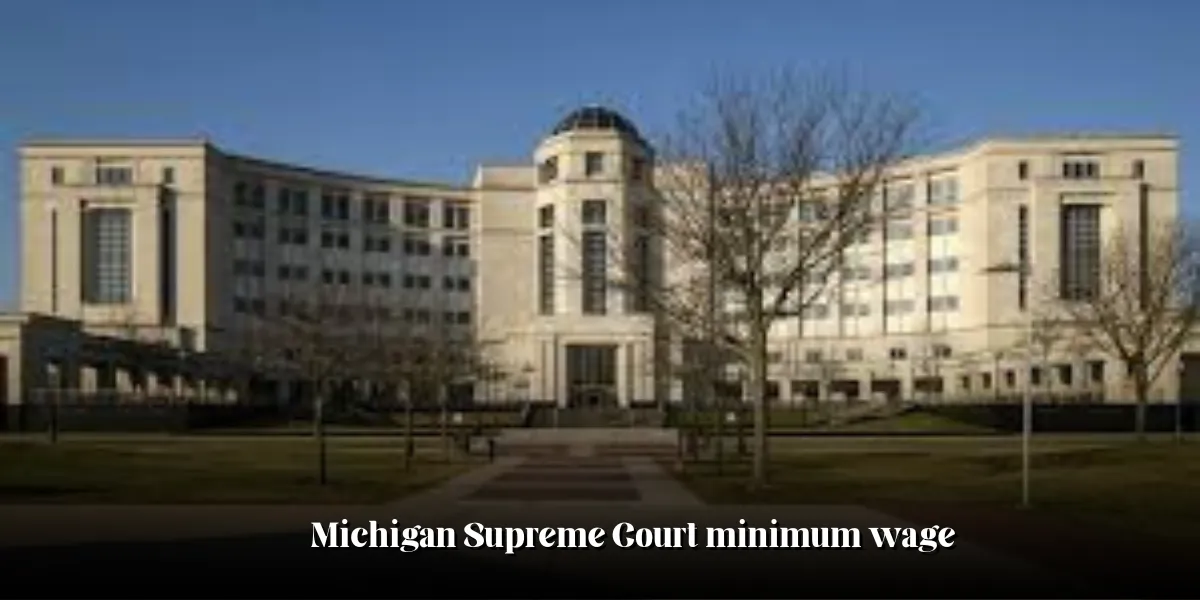
Michigan Supreme Court Restores Minimum Wage and Sick Leave Laws
Michigan Supreme Court minimum wage In a landmark decision on August 1, 2024, the Michigan Supreme Court has restored the state’s minimum wage and paid sick leave laws to their original form, as approved by voters in 2018. This ruling marks a significant victory for low-wage workers and reinforces the importance of upholding democratic processes and worker rights.
The 2018 Ballot Initiative Michigan Supreme Court minimum wage
Michigan Supreme Court minimum wage The journey began in 2018 when Michigan voters overwhelmingly supported a ballot initiative aimed at increasing the state’s minimum wage to $12 an hour by 2022. This initiative also included critical provisions for paid sick leave, recognizing the essential need for workers to take time off without losing income. The proposal was a response to the growing awareness of the struggles faced by low-wage workers and the importance of fair labor practices.
The Legislature’s Interference
However, following the 2018 election, the Republican-controlled legislature intervened. Instead of enacting the laws as mandated by the voters, lawmakers significantly altered them. The legislature reduced the proposed minimum wage increase and made changes to the sick leave provisions, sparking outrage among workers and advocates. This move was seen as a direct violation of the state’s constitutional process, undermining the will of the people.
The Supreme Court’s Decision
On August 1, 2024, the Michigan Supreme Court delivered its verdict, declaring that the legislature’s actions were unconstitutional. The court emphasized the importance of adhering to the democratic process and respecting the decisions made by voters. As a result, the original minimum wage and paid sick leave laws were reinstated.
Minimum Wage Increases
The restored law will see the minimum wage gradually increase over the next few years. The exact figures will be determined by the state treasurer, accounting for inflation. This adjustment will ensure that the wage rate keeps pace with the cost of living, providing much-needed financial stability to low-wage workers.
Elimination of Lower Minimum Wage for Tipped Workers
Another critical aspect of the ruling is the gradual elimination of the lower minimum wage for tipped workers, such as restaurant servers. Michigan Supreme Court minimum wage Historically, these workers have been compensated at a lower rate, relying heavily on tips to make up the difference. The new law will phase out this practice, ensuring that all workers receive a fair and consistent wage.
Paid Sick Leave
The paid sick leave provisions will now apply to many businesses, mandating that they provide workers with paid time off for illness. This change is expected to benefit countless workers who previously lacked access to this essential benefit, improving overall public health and worker well-being.
Impact on Workers
The Supreme Court’s decision is set to have a profound impact on Michigan’s workforce. Millions of workers will see their paychecks increase, providing a significant boost to their financial security. Access to paid sick leave will also enable workers to take necessary time off without the fear of losing income, leading to healthier and more productive workplaces.
Economic Security for Families
The wage increase and paid sick leave will enhance the economic security of countless families. With higher wages, workers will have more disposable income to spend on necessities and improve their quality of life. Paid sick leave ensures that workers do not have to choose between their health and their paycheck, promoting a more humane and supportive work environment.
Impact on Businesses
While the ruling is a victory for workers, it also presents challenges for some businesses, particularly small enterprises. Increased labor costs could necessitate adjustments in pricing or operations. However, businesses that adapt to these changes may find that investing in their workforce leads to higher productivity and employee loyalty.
Small Business Adaptation
Small businesses may face initial hurdles in adjusting to the higher wage requirements and paid sick leave provisions. However, studies have shown that fair compensation and employee benefits can lead to reduced turnover and higher job satisfaction, ultimately benefiting businesses in the long run.
Looking Ahead
The Michigan Supreme Court’s decision is a significant step forward for workers’ rights and democratic governance. It underscores the power of collective action and the importance of upholding the will of the people. As the new minimum wage and paid sick leave laws take effect, it will be crucial to monitor their impact on both workers and businesses.
Ongoing Advocacy
Continued advocacy for worker-friendly policies is essential to ensure that the gains made are not rolled back. imane khelif angela carini olympics boxing : Imane Khelif Wins Controversial Boxing Match at Olympics Organizations and individuals must remain vigilant and engaged in the legislative process, pushing for reforms that promote fairness and equity in the workplace.
Conclusion
The restoration of Michigan’s minimum wage and paid sick leave laws represents a monumental victory for workers and a reaffirmation of democratic principles. Michigan Supreme Court minimum wage This decision highlights the power of voter-approved initiatives and the importance of safeguarding worker rights. As Michigan moves forward, it is crucial to continue advocating for policies that support working families and foster a more equitable economy for all residents.

